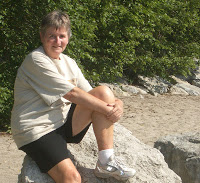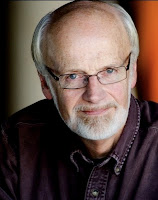Business was slow, so rather than just sit around wondering where my clients had gone, I got to work at home doing fall cleaning, that work where obsession facilitates doing a complete inventory of one’s possessions and an effective chasing of dirt from one place to another. It served to produce a lightening of the load and a freshening of my domestic environment. I ran the vacuum sweeper, dusted walls and woodwork, sorted randomly created stacks of papers, recycled all those things I had not got to or that no longer pertained, and carried out a ton of trash. I shook area rugs filling the autumn air with countless dust particles, knocked down cobwebs (after all, we didn’t need them for effect since Halloween was over), and even dusted the leaves of the fake fichus tree that so effectively fills one corner of the room. I washed the king-size linens, even the quilted spread, and added an insulated blanket to prepare the bed for the turning weather. With all that work completed, I had used up most of a day and so carried the electric sweeper to the basement.
The next morning I attacked that space making ready for the arrival of company for Thanksgiving. I loaded the CD player with some high energy music I rarely listen to and went to work all in a frenzy. Again there was laundry, sorting, carrying away recyclable materials, getting rid of cobwebs, washing windows, and the extra job of finding more out-of-the-way spaces for stowing my too-many framed pieces of art. The day passed quickly, too quickly, since as shadows lengthened I realized there was still too much work to do. I sat in a chair and stared at the closet door wondering what I’d find in there were I to open it.
Finally, as the room darkened with evening and my mood darkened, I wondered if I’d ever open that door. I felt sure I wouldn’t like everything I’d find there. “Oh, just do it,” I said to myself, rose from the chair, and threw open the accordion door to face the closet with its mementos, out-of-date equipment, and discarded values. I wasn’t surprised to find such things; after all aren’t closets meant to stow things out of sight? But I faced along with them a truckload of feelings, some of them that I had almost forgotten.
Immediately I saw the old LPs; the SONY reel-to-reel and a box of tapes; a stack of boxes of jigsaw puzzles solved last winter; fold up tables and chairs; table games for when company arrives; an old violin that had been in the family for generations and hasn’t been played for eons. I dusted these off, as I’d done annually for almost a decade. Then I turned my attention to unmarked boxes of uncertain content.
In one cardboard box I discovered my Diplomas; for years I’d gone to school, studied, was graduated from high school, college, and seminary. Years and careers ago.
In another box I discovered photos of my marriage, our growing family, and friends left behind in the several places I’d lived. One photograph shows me standing with my new wife by our black and white 56 Chevy one August afternoon at Lands End, a spot on Grand Mesa overlooking the desert that stretches off to the west. I wonder now what marriage even felt like.
Ooh, there are spider webs as well as dust. Do I really want to go any further?
On one shelf sat books, ones I had completely forgotten about since I hadn’t used any of their information for years. First were three large-print children’s dictionaries of the English Language, each one a specialized lexicon of appropriate usage: the first, language appropriate for school and church; the second, language appropriate for home; the third, language appropriate to use with my best buddies. I smiled, realizing that the habit of closeting one’s usage was a strategy of manners and survival practiced even by young children, especially ones of unusual proclivity.
Other books were there, volumes on sexuality, ethics, theology, and philosophy. They, too, hadn’t been opened in years, for when I had emerged from my closet I was no longer interested in their content. Well, not exactly, but my interest took a different turn, served a different purpose. I had considered their arguments, their insights, their potential. I had appropriated what I could and when I finally pushed myself out the door, left the books behind. Still their ideas inform my sense of self as I go about my weekly schedule and bolster my resolve to be ‘out’ when I meet new people and situations. But I quit buying updates of arguments on the same topics, content with my newer identity. Why I’ve kept these few I’m not sure. They represent the intensity of my inquiry into society and my life. I decided I was able to let them go and put them in the pile of things to give to Goodwill. Maybe they’ll help someone else.
Then there are the novels. I realize they, too, helped open me to my then future life as a gay man. I’d read them for decades trying to find myself among their characters. I’d especially searched for myself in gay novels and despaired that I must be so queer as not to appear. But I have kept a couple of them: Ambidextrous by Felice Picano and I Don’t Think Were In Kansas Anymore by Ethan Mordden, the two gay novels in which I did appear. I’ll keep hold of them for their encouragement and sentimental value. I realize that my experience of the closet, while costly, also helped make me what I am. I honor even the hidden part of my past. I also decided to keep the Masters and Johnson volume for its information on STDs—a wise reminder—and one book of feminist arguments about prenatal existence, a good thing to remember when one facilitates a group of LGBT storytellers.
And there was another book: The Craft of Acting. I’d studied this one over and over for while I felt at home with my profession in the church and comfortable with my duplicity/triplicity in matters sexual, I still knew I had to act. One tells a story but has to do so in a way that an audience can hear and perceive what is intended.
With this thought I look suspiciously at two old suit cases of costumes: Indian costumes for dancing at powwows, an African robe and mask for a children’s program I once organized, and a clerical robe with stoles. Even though I rarely dressed up for Halloween, I did have my costumes, my own drag costumes exotic and clerical. By wearing these costumes I defined my difference in socially acceptable ways. I guess I should just give them to my grandkids. Who knows what they may be experiencing, what costumes they may need!
So on that evening of the second day of fall housecleaning, I decided to discard and to keep varying items from my old closeted days. I discarded those things I had learned all too well and kept symbols of the victories of walking from that cramped space in a search for freedom. That seems to be the case with all closets. They bare cleaning and reorganizing from time to time, but may I never forget my past closeted life so I will never think to hide there again.
Denver, 2012
About the Author
Phillip Hoyle lives in Denver and spends his time writing, painting, giving massages, and socializing. His massage practice funds his other activities that keep him busy with groups of writers and artists, and folk with pains. Following thirty-two years in church work, he now focuses on creating beauty and ministering to the clients in his practice. He volunteers at The Center leading “Telling Your Story.”
He also blogs at artandmorebyphilhoyle.blogspot.com


